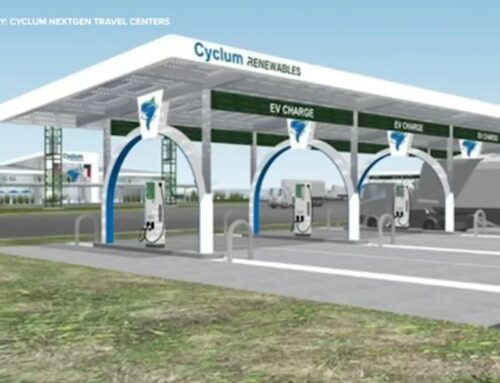Developing Sustainable Water Treatments and Environmental Remediation Technologies – Loyola Marymount University Newsroom
January 6, 2025

Jin Yong Choi, Loyola Marymount University assistant professor of civil and environmental engineering, has clear memories from his youth of the water quality difference between natural creeks and the affected rivers running adjacent to industrial and manufacturing sites in his native Korea. “My father is a material engineer and my inspiration for becoming an environmental engineer,” said Choi. “An insightful man, he started teaching me at a young age about the importance of sustainability and caring for the environment.”

Choi’s father facilitated hands-on educational experiences combined with everyday activities they enjoyed. “When I was a child, my father and I regularly traveled to the mountains to hike and experience nature. Together, we would organically construct environmental systems in the creeks, such as channeling a side stream with a water wheel I made from chopsticks that led to a small storage basin with natural sand-filtered water which was relatively clean for the animals and birds to drink,” said Choi. “These types of experiments came naturally to me.”
Today, Choi’s research is still focused on a most valuable natural resource – water. His interests include the development of sustainable water treatment, desalination methods within the field of agriculture, and environmental remediation technologies, as well as implementation of these innovative technologies for real-world application. “The ultimate goal of my research is to contribute to society, underserved communities, and the nation’s clean energy objectives by addressing water stress and energy transition challenges under global climate change,” Choi said.

His research outcomes are focused on beneficial water reuse and resource recovery. During water treatment methods, he is looking for not only production of clean water, but also promoting water reuse targeted at different end users such as within agriculture, mining, and oil/gas industries. Treating waste water can also include resource recovery of heavy metals, and critical minerals which are essential resources for the transition to renewable energy and can be used in batteries, solar cells, and wind turbine components. Waste water streams can contain lithium, cobalt, and rare earth elements that are essential for batteries, magnets, and other energy storage technologies.
Choi is also interested in developing cost-effective engineered materials. He has experience making kombucha and that has evolved to growing bacteria to produce living membranes that he hopes can eventually compete with commercially synthetic petroleum-based membranes used in water and waste water treatment processes. The same bacteria used to make kombucha can also be used to produce a cellulose membrane that can be used for water and air filtration. He sees opportunities in this area for LMU students to participate in this early-stage research. Students will be able to explore recipes for growing the membrane, investigate membrane characterization using analytical instruments, and conduct actual filtration tests to look at productivity, and structural and mechanical strength.

Choi is currently teaching two courses: Introduction to Sustainability and Environmental Engineering, and Water Treatment Processes. Prior to joining LMU, he was an assistant professor of environmental engineering for Montana Technological University. He also served for three years as a water treatment system manager for UCLA’s Institute of the Environment and Sustainability providing educational lectures to community residents and local industrial partners. He is a state certified water treatment operator and has deployed and operated several water treatment and desalination systems in agricultural areas of California.
Choi earned both his Ph.D. and a master’s degree in civil, architectural and environmental engineering from the University of Texas at Austin. He received a bachelor’s degree in civil and environmental engineering, with a minor in business administration, from Inha University in South Korea.
Search
RECENT PRESS RELEASES
Related Post




